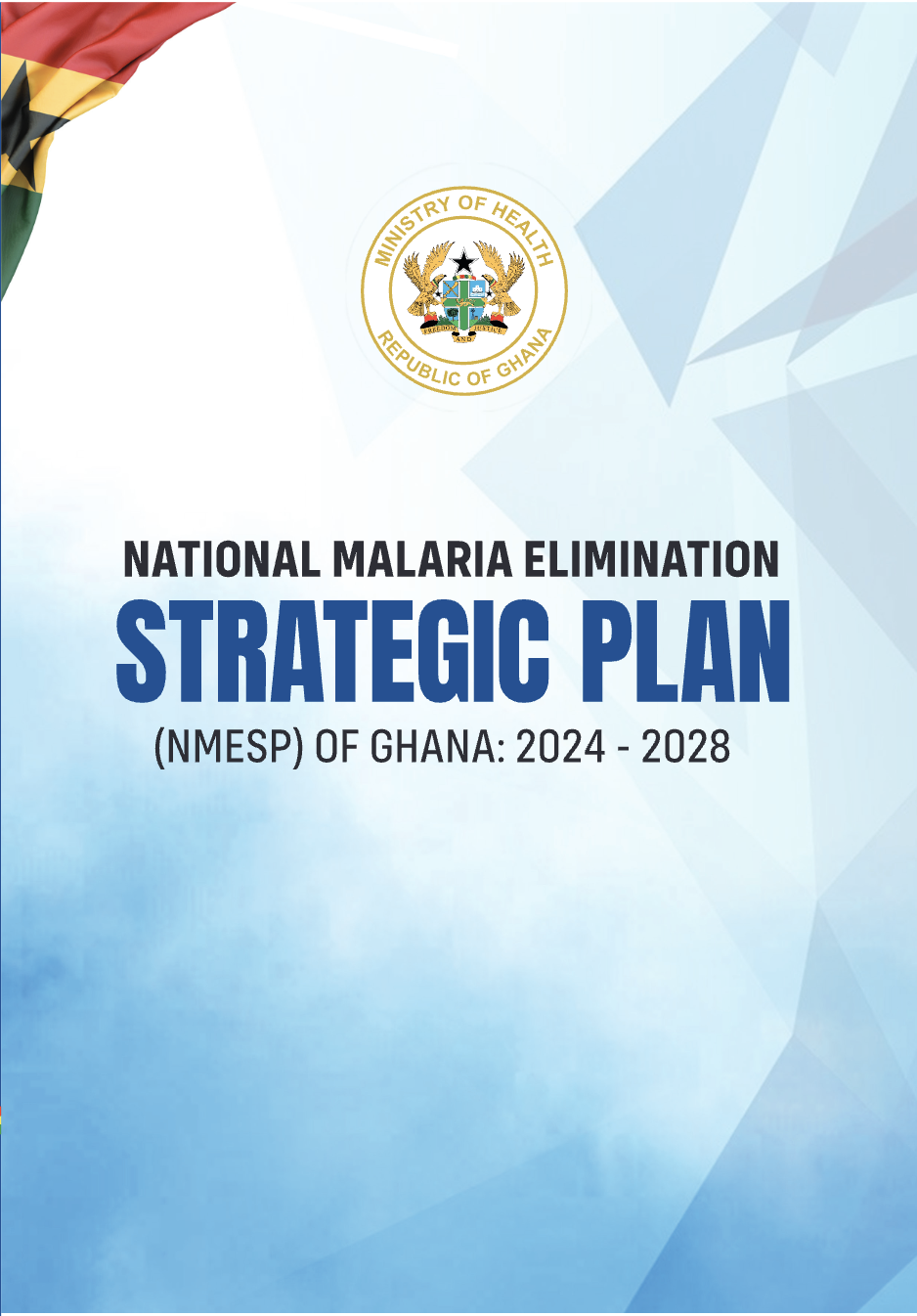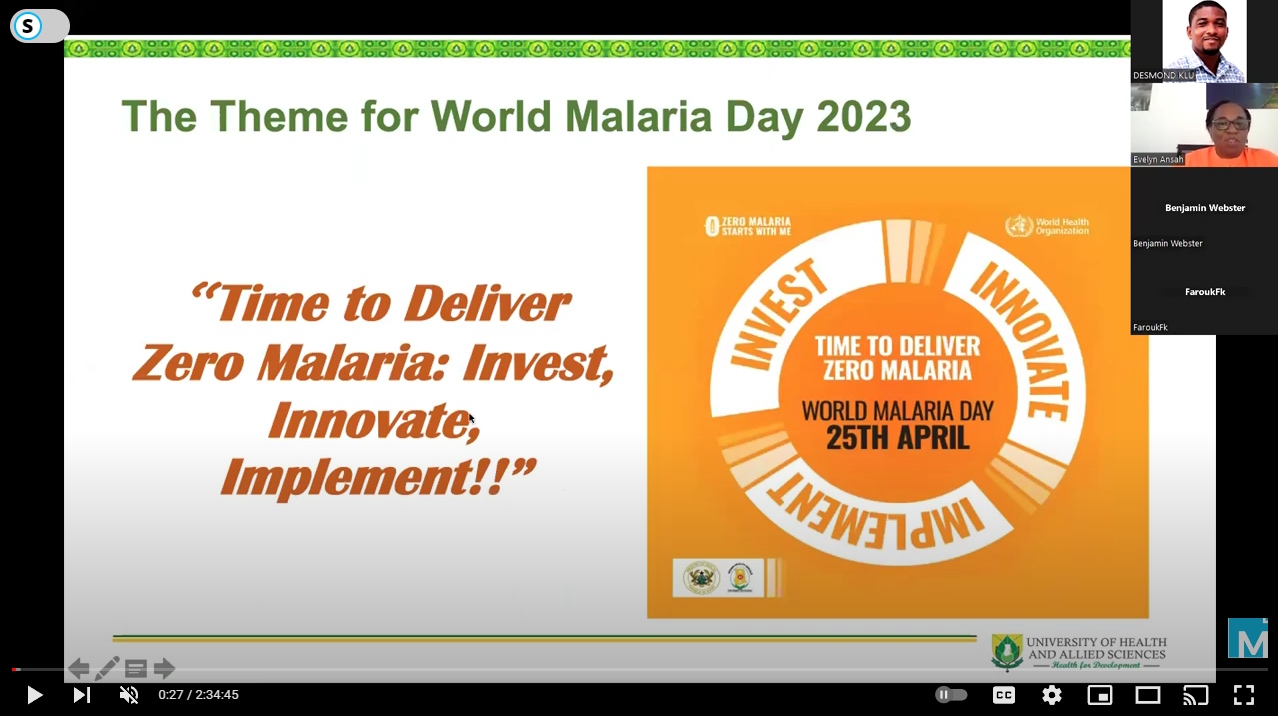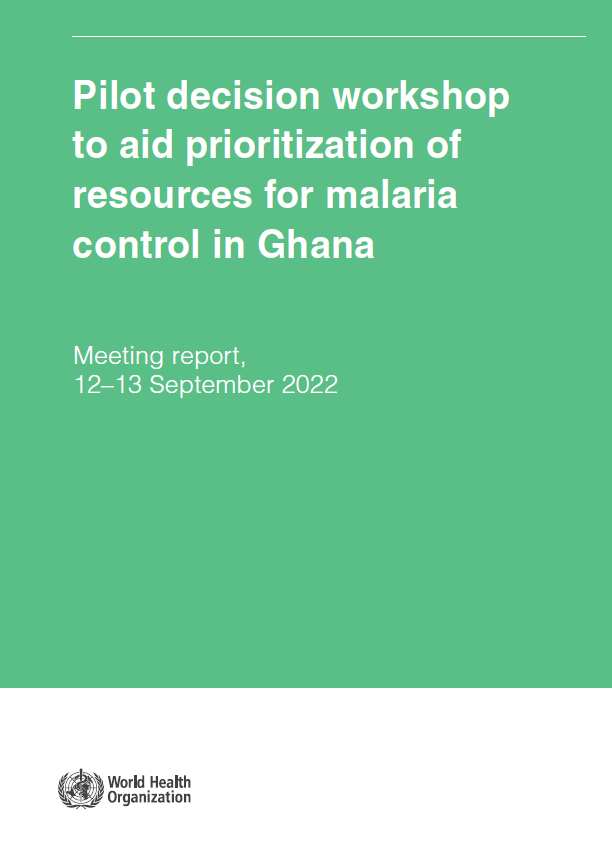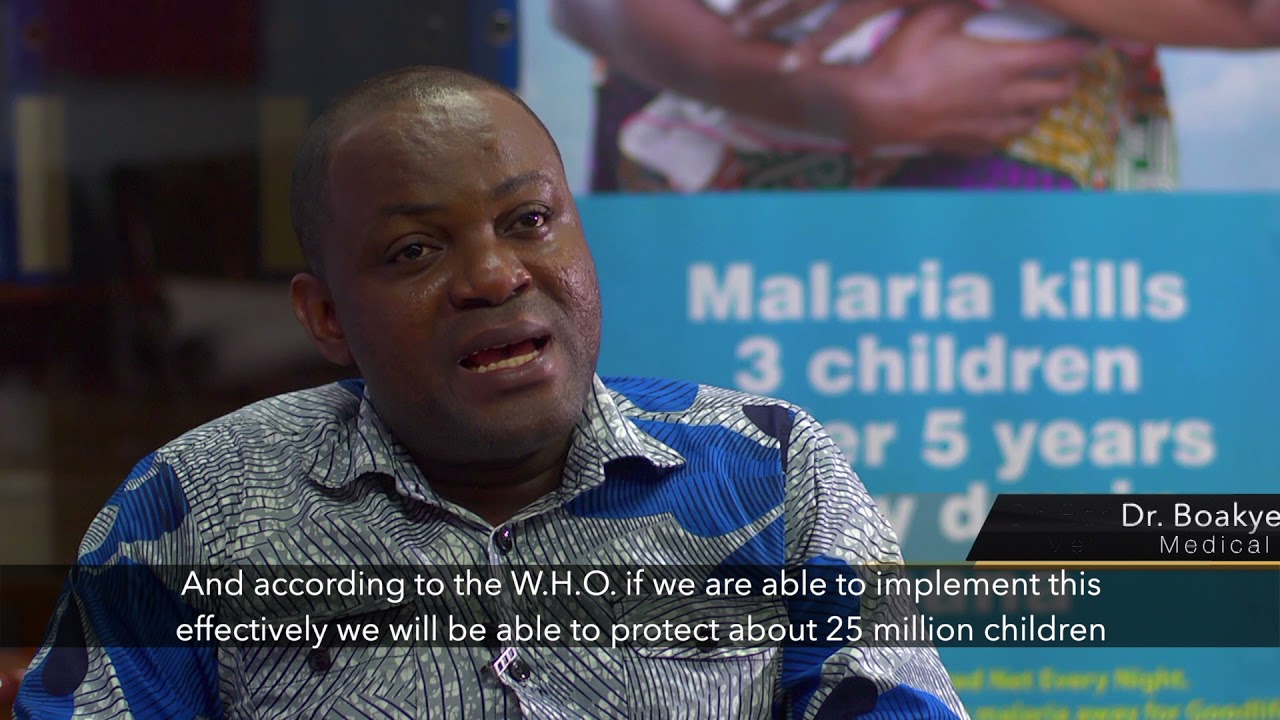National Malaria Elimination Strategic Plan (NMESP) of Ghana: 2024 – 2028
Countries: Ghana
Published: 16/01/2024
Ghana has made significant progress regarding malaria control over the years. For instance, deaths due to malaria have reduced from 2,799 in 2012 to 151 in 2022. Malaria prevalence has also declined from 27.5% in 2011 to 8.6% in 2022 while confi rmed malaria cases per 1000 population has reduced from 192 in 2019 to 159 per 1000 in 2020. Despite these achievements, malaria remains a significant public health problem in Ghana.
Developed midway during implementation of the National Malaria Strategic Plan 2021-2025, Ghana’s first National Malaria Elimination Strategic Plan births a paradigm change from control to elimination, shifting focus from burden reduction to disruption of malaria transmission. The strategic plan outlines the goals, objectives, and contextually relevant strategies to be deployed to achieve same. It is an exciting and unique period as the country works towards the ambitious target of eliminating malaria in 21 districts with very low burden of malaria by 2028, deploying new tools, expanding coverage and quality of delivery of existing tools through innovation and reliance on data, within the context of a strong and effective leadership across all levels, high political will, and commitment, community engagement and ownership, as well as multisectoral cooperation and partnerships.
Drawing from lessons from countries that have eliminated malaria, the plan proffers a realistic and practical resource mobilisation strategy to support planned activities, and a robust monitoring and evaluation plan to ensure timely and complete implementation. It is our collective hope that the goals and objectives of this plan would be realized. The plan when implemented will offer the necessary momentum towards a nationwide elimination of malaria and contribute towards the socio-economic development of Ghana.



